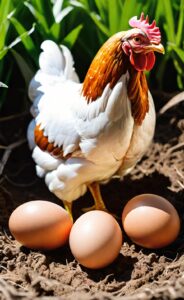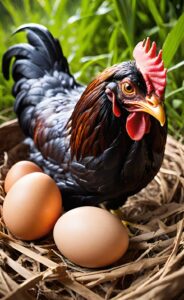We often see labels defining personality types and behavioral characteristics, sigma males, alpha males, beta males, and so on. These labels attempt to group similar traits and tendencies, often offering insight into individual behavior. In contrast, aspergers syndrome, a condition on the autism spectrum, is often discussed in a clinical context. However, when we juxtapose the sigma male and aspergers syndrome, we notice fascinating similarities.
Understanding the Sigma Male Personality Type
Sigma males, often regarded as the “lone wolves” of the social hierarchy, are a fascinating study in contrast to the alpha males’ assertive dominance. With a distinctive preference for solitude, these individuals frequently distance themselves from bustling social scenes and group gatherings. This choice, however, isn’t driven by shyness or social apprehension; instead, it’s a reflection of their inner world, where they relish in their independence and cherish their personal space.
Their uniqueness doesn’t end there. Sigma males are renowned for their autonomous thinking, possessing an unwavering set of personal beliefs and principles. This independence extends to their refusal to bow to societal norms and expectations, allowing them to carve out their distinct path. In this way, they demonstrate a form of silent rebellion, sticking to their personal rules in defiance of conventional standards.
Beyond their independent streak, Sigma males also display a marked propensity for observation and analysis. They keenly watch the world around them, absorbing information, and understanding patterns. Coupled with their introspective nature, this analytical bent fosters an air of mystery around them, further intriguing those who try to understand them. It’s this enigma that adds to the complexity and allure of the Sigma male personality.
Unraveling the Aspects of Aspergers Syndrome
Aspergers syndrome falls under the broader autism spectrum, characterized by specific behavioral tendencies. Notable among these are the challenges individuals with aspergers often face in nonverbal communication and social interactions. Their interactions with others are frequently marked by a level of awkwardness, perceived by those unfamiliar with the syndrome.
A defining characteristic of aspergers is the individuals’ deep-rooted interest in particular subjects. This interest often borders on the obsessive, manifesting in an immense amount of knowledge and detail about their chosen subject. This, coupled with their preference for routine and predictability, forms the foundation of their realm.
Nonetheless, these individuals’ expressiveness tends to be muted. Reading and reciprocating social cues, a seemingly innate skill for many, can be an uphill task for them. This might lead to misinterpretations, as their reactions and responses may not align with general expectations.
In addition to these, their predilection for solitude is also noteworthy. They often prefer their own company, not due to any form of anxiety or shyness, but as a manifestation of their unique neurological construct. Despite these challenges, individuals with aspergers have unique strengths, such as a keen eye for detail and a deep-seated fascination with patterns and systems, that truly sets them apart.
The Shared Traits of Solitude and Introversion
Let’s delve into the interesting correlation between the lone wolf tendencies of sigma males and individuals with aspergers syndrome. Both have an affinity for their own company. They feel rejuvenated and recharged when left alone with their thoughts and interests. But this solitude is not a manifestation of social anxiety or shyness.
For the sigma male, it is a choice, a conscious decision driven by a desire for independence and a penchant for introspection. For someone with aspergers, it’s a trait inherent to their neurological makeup, part of their unique identity. So, the next time you see a person quietly observing from the sidelines, remember, their solitude might just be their superpower.

Similarities in Communication Patterns and Social Interactions
Diving into the social dynamics of both sigma males and those with aspergers, we find intriguing parallels. Neither group particularly enjoys engaging in casual banter or small talk, favoring substance over triviality in their interactions. Instead, they flourish in one-on-one environments where the conversation can shift to topics of depth and significance. This shared preference, however, arises from different places.
At the intersection of sigma males and individuals with aspergers lies a common theme, non-conformity. Sigma males, the self-proclaimed rebels of societal structures, adopt this stance as a conscious act of defiance. They revel in their individuality, valuing their unique perspective over societal expectations and norms. Their non-conformity is thus a testament to their autonomy and independence.
Conversely, the non-conformity observed in individuals with aspergers has a different origin. Their unusual approach to communication and social interactions can often make them appear non-conforming. However, this is not an act of rebellion but a reflection of their neurological makeup, manifesting as an inherent part of their identity. Their interactions and responses may not align with typical expectations, leading to their behavior being misunderstood or misinterpreted.
Conclusions: A Fascinating Overlap
The crossroads between the sigma male and aspergers syndrome is indeed captivating. It’s an intriguing study of how personal choice and neurological uniqueness can shape traits that seem parallel. Sigma males choose to be lone wolves, to observe rather than participate, to challenge norms rather than comply. On the other side, those with aspergers, although wired differently, exhibit similar tendencies but due to their inherent neurological structure. Or are they the same after all?
This shared space of seeming non-conformity, love for solitude, and preference for substantial communication underlines the need for a deeper understanding and broader acceptance of individuals outside the conventional societal framework. This overlap reminds us that the spectrum of human diversity is vast, extending beyond our cultural or ethnic identities, and reaching into the depths of our personal and behavioral characteristics.







